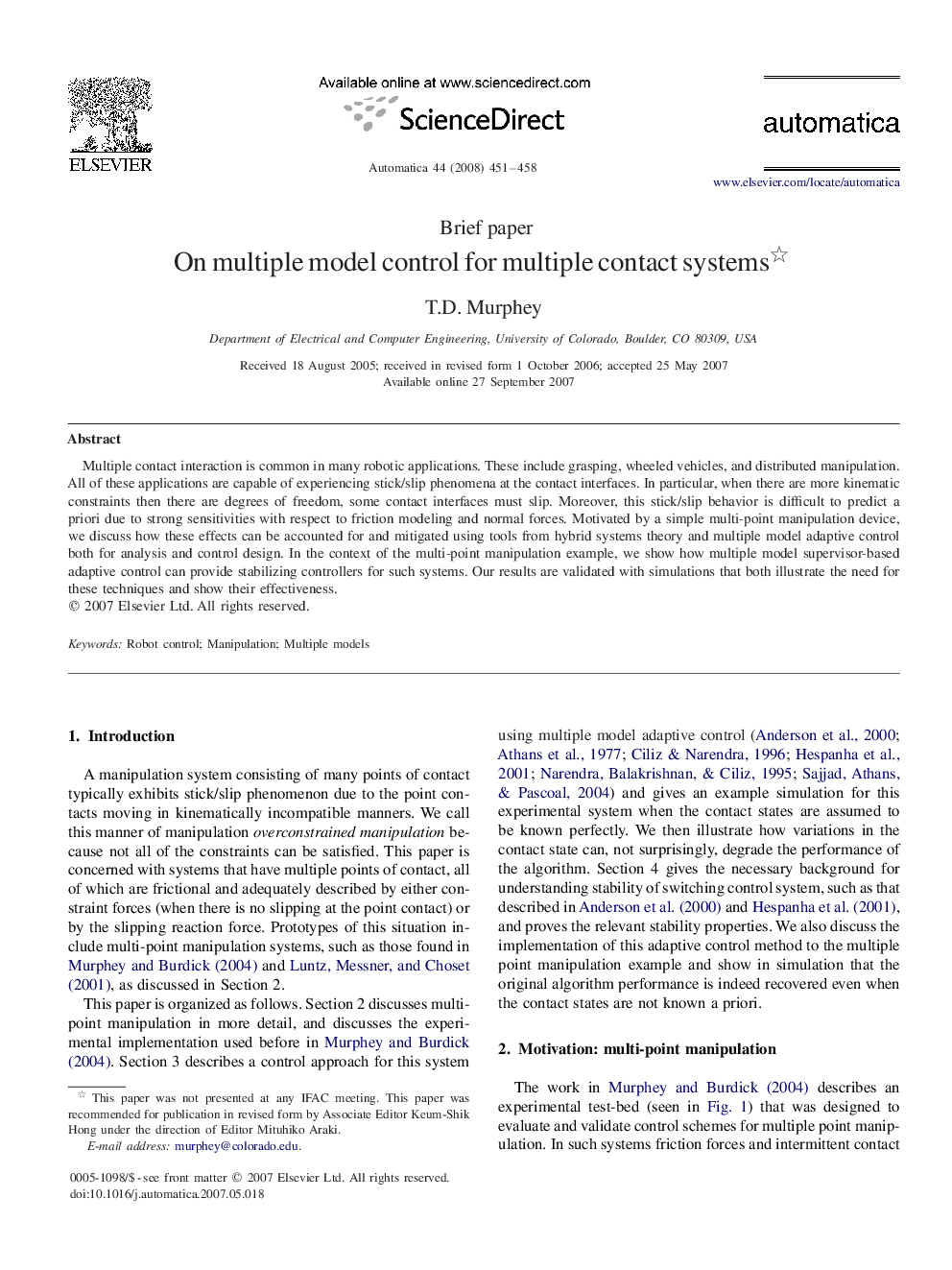| Article ID | Journal | Published Year | Pages | File Type |
|---|---|---|---|---|
| 698328 | Automatica | 2008 | 8 Pages |
Multiple contact interaction is common in many robotic applications. These include grasping, wheeled vehicles, and distributed manipulation. All of these applications are capable of experiencing stick/slip phenomena at the contact interfaces. In particular, when there are more kinematic constraints then there are degrees of freedom, some contact interfaces must slip. Moreover, this stick/slip behavior is difficult to predict a priori due to strong sensitivities with respect to friction modeling and normal forces. Motivated by a simple multi-point manipulation device, we discuss how these effects can be accounted for and mitigated using tools from hybrid systems theory and multiple model adaptive control both for analysis and control design. In the context of the multi-point manipulation example, we show how multiple model supervisor-based adaptive control can provide stabilizing controllers for such systems. Our results are validated with simulations that both illustrate the need for these techniques and show their effectiveness.
